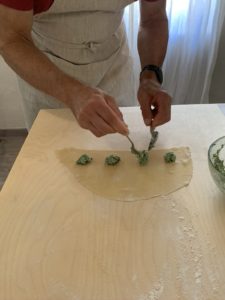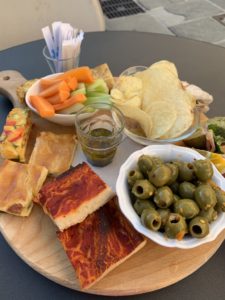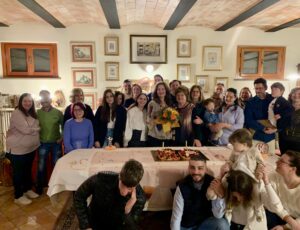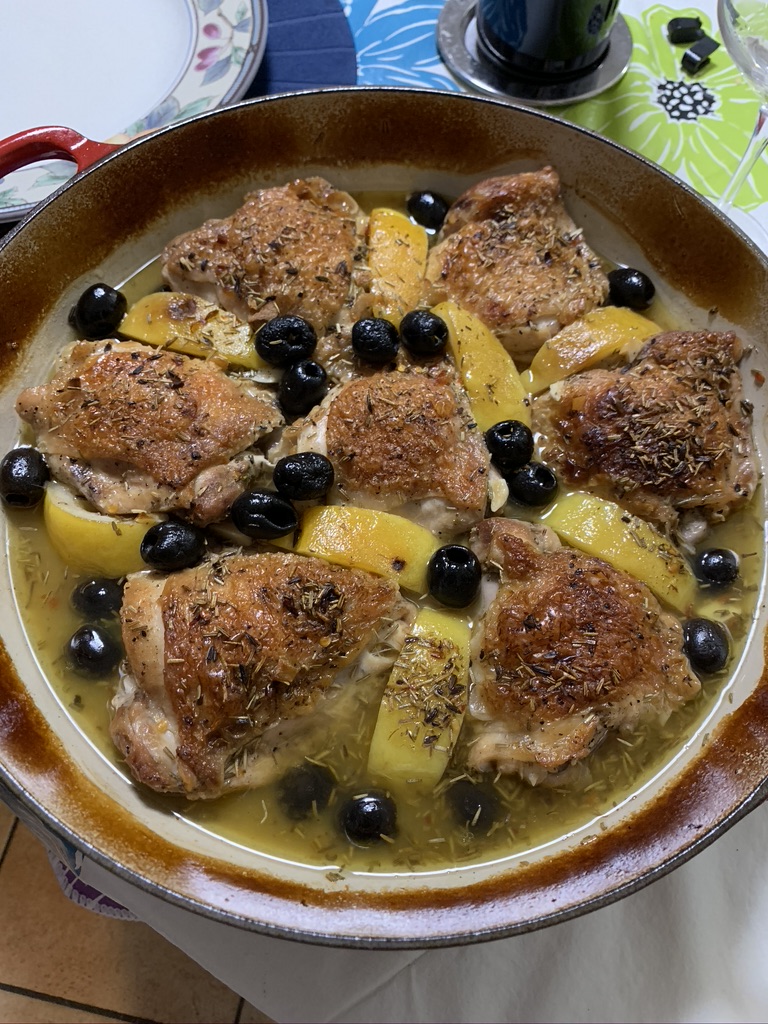
Braised Chicken with Lemon and Olives (yes, I made this!)
Recently, in the New York Times, there was a fascinating story about people who, because of the COVID19 situation, were forced to cook for themselves, some seemingly for the first time in their lives. In the article entitled “Fancy Cakes? Quarantine Sourdough? Not for These Hapless Home Cooks” people describe all sorts of food disasters such as catching the oven on fire by putting pizza directly on the wire rack without a tray. There were those who couldn’t follow a basic recipe, or cook pasta. Let’s just say that the reader commentary was brutal. The big question being, how can people NOT know how to do basic cooking? You would think that this is a skill most people have. Over the years, whenever I was in a Barns and Nobel or other bookstores, the cookbook shelves were literally groaning under the weight of all the glossy, hefty (often very expensive) cookbooks. And yet, in the States, I knew very few people who actually did a lot of cooking from scratch. Fewer still knew how to handle a knife or had a basic knowledge of basic food ingredients. This loss of cooking skill or “culture” didn’t happen in a vacuum. Even while there were those who celebrated kitchen craft and discovered salvation through Julia Child, there were huge changes occurring in the food industry that altered not only the food, but the way people related to and consumed it.
Food as Formulations
When I was a boy back in the 60’s, the food in the U.S. was still “real.” By this I mean plants and animals were not being genetically altered. The number of convenience foods and artificial ingredients was far lower than today. The food science movement of the 70’s had not yet begun to dominate the way people ate. I know this is going to sound strange, but if you live in Italy today and you eat a pork chop, it tastes like the pork I remember as a boy, greasy, rich, flavorful, moist, yummy! The pork in the U.S. today doesn’t taste like anything because the producers have literally bread or genetically modified the fat/flavor right out of the animals. This goes for a lot of food products today in the States. In general, we have far more access to heirloom and heritage foods here in Italy and Europe.
-
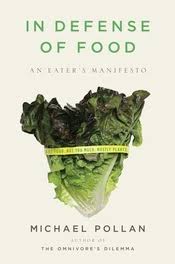
In Defense of Food -
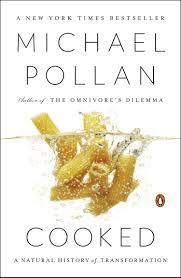
Cooked
Someone who speaks quite eloquently about our relationship to food and cooking is the author, Michael Pollan. He has been writing about this subject for a long time, but in 2008 he literally changed the conversation about food with his incredible book, “In Defense of Food.” In it, he argues that much of what people eat today isn’t really food. Much of what people consume are formulations. The building blocks that make up peoples’ diets have been industrialize or altered or supplemented so much so that they aren’t really “food.” So, he came up with a 7-word dictum that sums up his approach to healthy and enjoyable eating:
Eat food, not too much, mostly plants!
Of course everyone might not agree that eating a diet that’s mostly plant-based is the way to go, but underlying his whole approach is the idea that people should learn how to cook for themselves. In this way, we have greater control over the raw ingredients. We can try to source higher quality produce, purchase meats from producers who do not treat animals inhumanely. We can also better control our diet by being more aware of the quantity and quality of the food we eat. To illustrate this point, here’s a trailer from the Netflix series “Cooked” that is based another of Pollan’s books.
In his book and the TV series Pollan takes us through a exploration of food and cooking by breaking them down into the four basic elements: fire, water, air and earth. If you don’t have access to Netflix, I highly recommend you read both of the books mentioned here. They will transform your relationship to food and cooking.
In the future, I’m going to share my personal cooking and eating experiences and try to connect them with some of the concepts I’ve covered in this post. We are fortunate because we live in Italy, a country with what is arguably the best food culture in the world. I definitely have access to some of the highest-quality food products available. I’m looking forward to sharing some good food with you!
